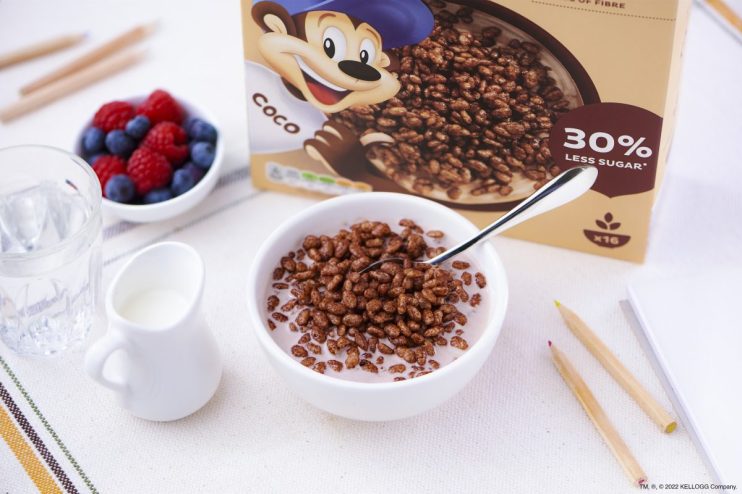Kellogg’s loses court battle against government over sugary cereal promotion rules

Cereal giant Kellogg’s has lost its court case against the government’s new rules on the promotion of sugary foods in supermarkets.
Kellogg’s had argued the government’s formula does not take into account the nutritional benefits of milk, which is typically consumed with cereal at breakfast.
However, a ruling at the Royal Courts of Justice sided with the government.
The food titan had argued milk is eaten with cereal in the vast majority of cases and therefore it should be included in the nutritional calculations that determine whether a product is too unhealthy to be prominently displayed.
Under upcoming regulations, retailers will face restrictions on food and drink high in fat, salt or sugar (HFSS) in England. The new rules come as part of ministers’ bid to tackle childhood obesity.
Some items – including Kellogg’s Crunchy Nut Corn Flakes and Fruit and Fibre – will be banned from being on display in store areas such as check outs, entrances, aisle ends. There will also be restrictions with displaying products online too.
While the rules were supposed to fully launch in October, the government has delayed them by a year as it looks into the impact of the cost of living crisis.
Kellogg UK managing director, Chris Silcock, said the firm was “disappointed” that the court upheld the government’s approach.
“It makes little sense to us that consumers will be able to buy other products, like donuts and chocolate spreads, on promotion – but not many types of breakfast cereals,” he added.
However, the company said it did not intend to appeal the court’s ruling.
It had told the court that it was set to lose up to £113m in sales should the restrictions come into force in their current form.
In the judgement, Justice Linden said he accepted “breakfast cereals are typically consumed with milk and are marketed and presented on this basis.”
However, he said this was “not invariably the case.”
He added: “They may be eaten dry or with liquids other than milk – e.g. yoghurt, juice or water – or with non-dairy milk or dairy milk other than semi skimmed milk. Breakfast cereals clearly are a food and they can be, and are, consumed in a variety of ways and portion sizes.”
At the time the legal action was launched in late April, rivals Nestlé and Weetabix were not planning to lodge similar cases, CityA.M. reported.
However, the government was keen to succeed against Kellogg’s, in an endeavour to deter other food manufacturers from making similar cases for reducing their own items’ HFSS contents, the BBC reported.